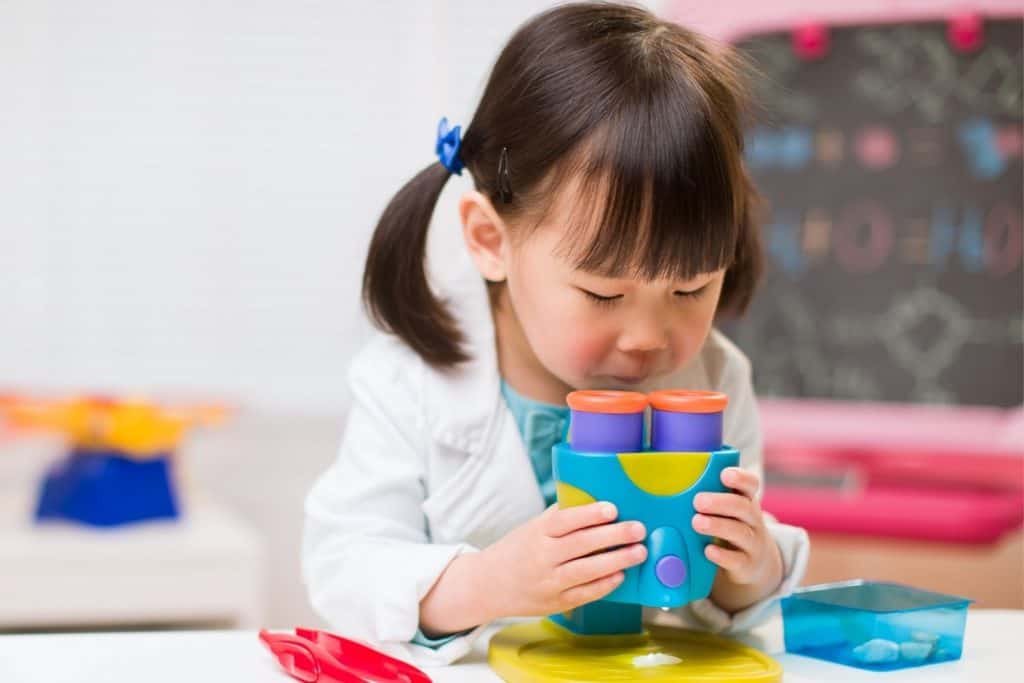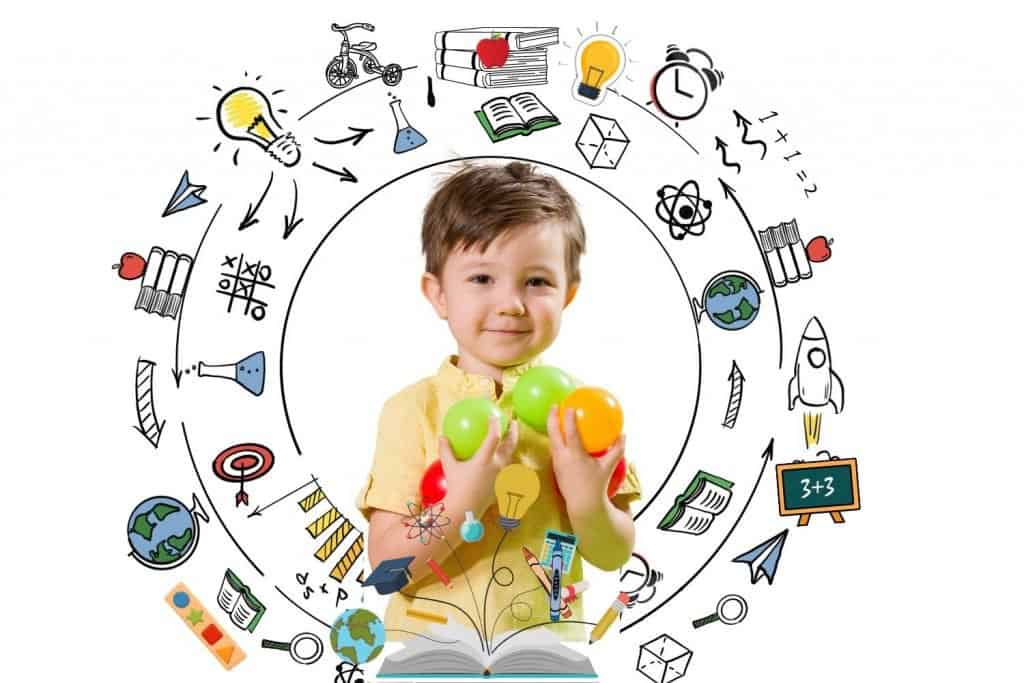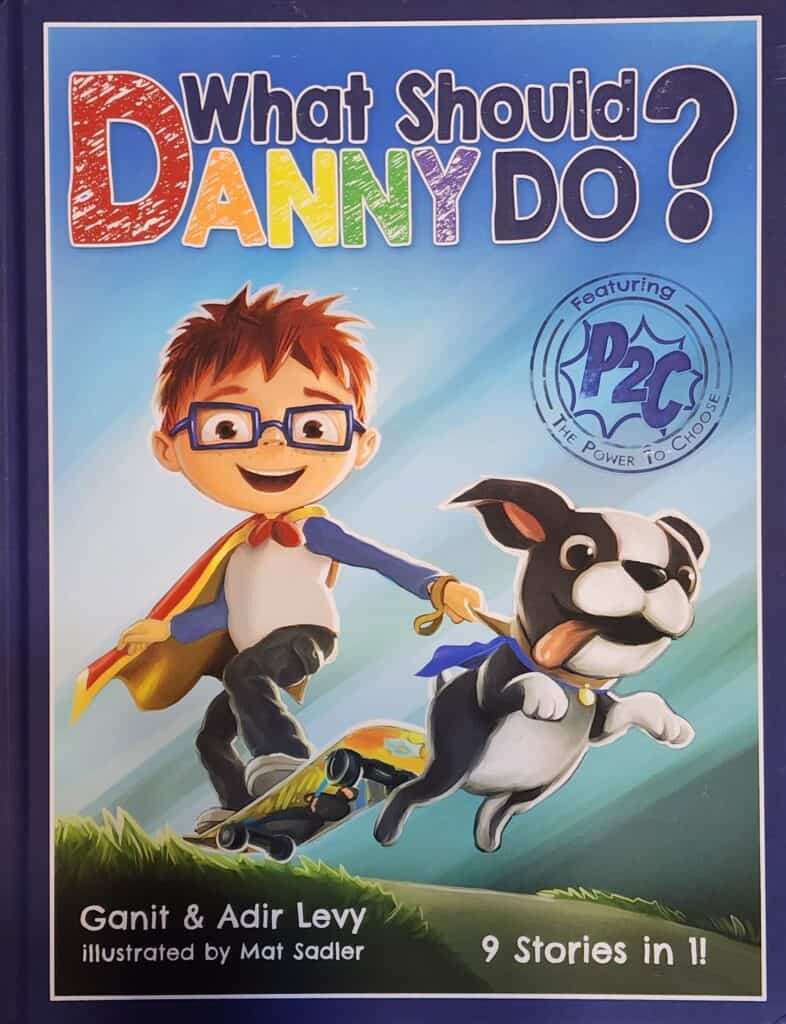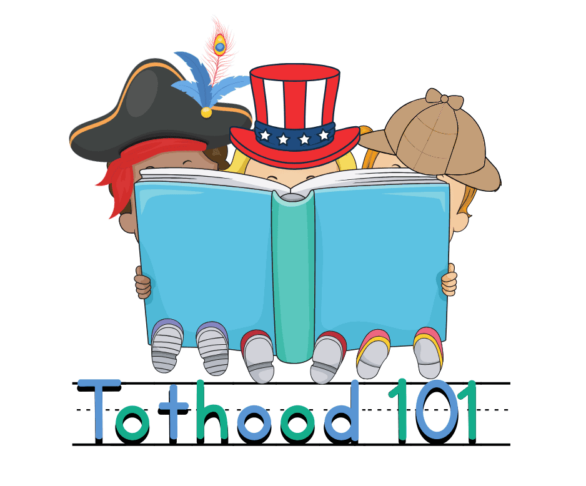
Written by Debbie Brown | February 6, 2023
Critical thinking for preschoolers refers to the way a child thinks and understands the world around them. God created them ‘wired to learn” and they’ve been processing the world around them since the day they were born.
Everything your child encounters can help them build and develop these thinking skills. From birth till 5, a foundation is laid as these skills develop at an amazingly rapid rate. As we watch them play we can see from their actions that those wheels are turning in that little brain of theirs. They make observations, process what they think is going on and then test it to see the results (sounds like a miniature scientist – doesn’t it?)

This post contains affiliated links. For more information, please read my full disclosure.
Because of this, it’s important to offer your child a smorgasbord of activities in all areas -reading, math, science, dramatic play, arts, gross and fine motor. For a homeschooler there are learning opportunities everywhere: in the backyard, on a walk, at the store, down by the lake, and in the living room playing with their toys. They are like little sponges taking everything in. The more they are exposed to, the more pegs or learning blocks they’ll have to build on.
Critical Thinking for Preschoolers
Play is a child’s work. During early childhood, children are literally little researchers gathering information, processing it, and filing it away to build on in the near future. Long before they are able to tell us what they’re thinking, they are already capable of problem-solving, if we give them a chance.
Children need to be encouraged and given the time to think of their own creative ways to solve problems they encounter during play. But there does need to be a balance. We want our children to be challenged but not frustrated.

Critical Thinking Questions for Kids
One way to help kids develop critical thinking skills is to challenge them by asking them critical thinking questions. Questions that are open-ended and can’t be answered with a “yes’ or “no”. Here’s a few examples:
- How high do you think you can build your tower before it falls?
- Why do you think this plant died?
- What could we make with this? Where should we put this?
- what would you do if…?
- How can we fix this?
- How many do you think will fit in here?
- What made you think of that?
Fun Critical Thinking Activities
There are numerous activities that can be used to help foster build skills in critical thinking for preschoolers.
- Matching
- Match socks (it’s fun and productive – lol)
- Match 1 on 1. One fork for every plate
- Match a toy animal to a picture in a book
- Comparing
- Using two items ask your child questions like, which one is: heavier, longer, softer, and so on
- In my article Simple Measurement Activities for Preschoolers, you can find a big collection of fun ideas to use for comparing activities for preschoolers.
- Classifying
- Cause and Effect
- Sorting
- Time /Sequencing
- Preschoolers gain a sense of time when they have routines.
- Predict What’ll Happen Next
- Occasionally when you are reading a new story to your child, have them predict what they think will happen next.
- Puzzles
- Memory games
- Read, Read, Read
- You can check out Booklists for some great ideas
- Talk About Everything
- Describe what your doing
- Answer their questions
- Rhyming
- Nursery Rhymes are a great way to work on rhyming words. If you need to brush up on the lyrics check out 30 Popular Nursery Rhyme Lyrics for Preschoolers
- Read stories with rhyming text like Dr. Seuss’s books
- Object permanency (knowing an object exists that they can’t see – a toddler wanting to sit out on the front porch to wait for Daddy to come home.)
- Patterns
- Math Pattern Activities for Preschoolers will give you plenty of ideas for teaching this concept
- Using Their Imagination
- Dramatic play
- Using one thing to represent another like a block as a phone.
- guess which hand
- Play board games. Check out Best Board Games for 5-6 Year Olds
- Play guessing games
- Set out 5 items. Have them shut their eyes as you take an item away. Have them guess what’s missing.
- Put a familiar item under a blanket and let them guess what it is .
- Here are some free online critical thinking games from a company called the The Critical Thinking Co. I have used (and loved) a lot of their products while homeschooling.
What Should Danny Do? by Adir Levy

I highly recommend this fun, interactive book for teaching preschoolers how to think about the choices they make and seeing what the consequences of those choices are without actually experiencing them themselves.
Be sure to also check out:
- 15 Picture Books to Teach Problem Solving To Kids
- Math Pattern Activities for Preschoolers
- 5 Senses Preschool Activities

DEBBIE BROWN | Owner and Curriculum Designer
Hi! I’m Debbie Brown. I created Tothood 101 because I’m passionate about sharing preschool activity ideas, and resources that I’ve gleaned from my 20+ years of experience teaching preschoolers at home and in the classroom. My goal is to encourage, guide, and help inspire you to make learning SUPER FUN for your preschooler at home! Check out the ABOUT page to learn more.
CONNECT WITH ME!

